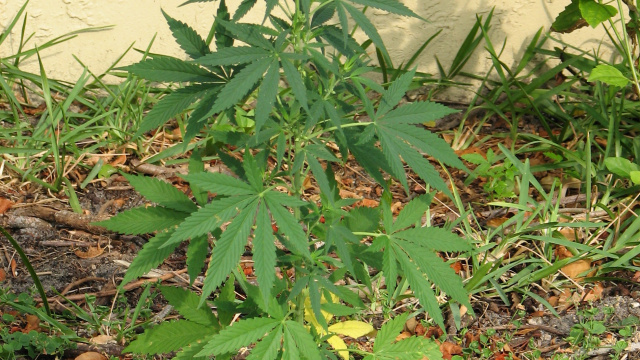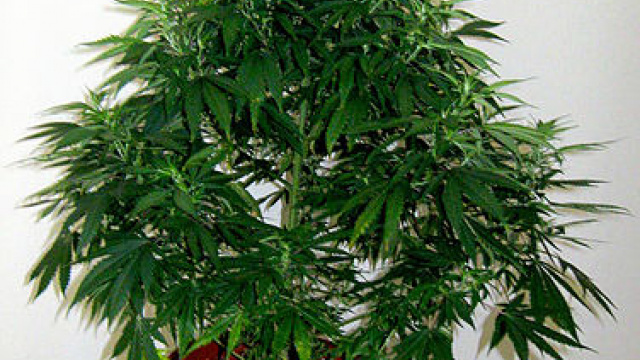January 31, 2013
Patriot Energy joins state hemp association
CORBIN — By Jeff Noble, Staff Writer
And could the reclaiming bring a hike in southeastern and eastern Kentucky’s economy?
A bioenergy company with roots in the Tri-County thinks so.
Patriot Bioenergy Corporation recently became the first corporate member of the Kentucky Hemp Growers Cooperative Association, a Lexington-based organization that wants to make industrial hemp legal in the state — something that hasn’t been done since it was last grown during World War II as part of the nation’s war effort at home.
Patriot’s CEO Roger Ford said Wednesday industrial hemp can be grown in a variety of areas, including hillsides, which would complement the growing of energy beets for a biofuel on the company’s energy facilities, including those in the Williamsburg-Whitley County area.
“The optimal planting method seeds the plants closely together, which encourages the stalks of the plant to grow while the leaves grow smaller, increasing per-acre yields. That would work hand-in-hand with our Whitley County facilities. The industrial hemp seed can be processed into bio-diesel while the stalks are a cellulosic material, which is useful for a variety of things.”
Ford added Patriot’s focus would be to produce a biomass-coal blend from hemp and coal that would be what he called “torrified” — an energy process producing feedstock for energy production.
“The overall economic impact would be to diversify and improve the local economy by the production of industrial hemp. It would help agriculture and our project in particular.”
Patriot, based in Pikeville, is discussing the potential for using industrial hemp with coal companies. Ford said testing would be done at a laboratory in Magoffin County, with Patriot funding the research, and the results expected to be released in the middle of March. “We are currently conducting a feasibility study that will blend coal and hemp to measure the BTU values, as well as measure the emissions’ reclamation potential to hemp growing forward.”
Ford also brought up the possibility industrial hemp in Kentucky could also be used for energy and horse bedding at horse farms in the state and around the nation. A consultant with Ford on hemp research told Business Lexington magazine earlier this week the use of hemp as horse bedding is “straightforward and has been done.”
“The next step, conversion of the hemp-manure mixture to methane, is certainly viable, has been optimized ad published as recently as 2012 by a Finnish group. … Besides material for co-combustion with coal, we can produce biodiesel from the seed oil, which can be used as is or converted to jet fuel. Likewise, the whole plant can be used as a feedstock for fermentation of ethanol or longer chain fuels — gasoline, jet fuel, the list goes on — with huge markets associated. The ability to capture even small percentages of markets on this scale would be a tremendous boost to Kentucky,” Dr. Katherine Andrews told the magazine.
The state’s Commissioner of Agriculture, James Comer, wholeheartedly supports bringing industrial hemp back to Kentucky. Ford stated Patriot is working with Comer and the state’s Industrial Hemp Commission on the issue. He’s also encouraged with support in Frankfort and Washington from both political parties.
“Thus far, we’re encouraged with the bi-partisan support in Kentucky. Senator Sara Beth Gregory is a member of the Senate Agriculture Committee and we are hopeful that the committee will vote to send SB (Senate Bill) 50 to the full Senate in the next couple of weeks. … In addition, we are encouraged by the strong support from Senator Rand Paul, Congressman Barr, Congressman Yarmuth and Congressman Massie. We would hope that Senator McConnell and Congressman Rogers would weigh in and support this issue. Their leadership is needed in Washington and the people of Kentucky need a change in federal law so businesses and farmers can produce this crop and create jobs,” said Ford.
In Frankfort, Senate Bill 50 provides procedures that would allow and facilitate cultivating industrial hemp, if there is a similar change in Washington. While it’s not a drug like marijuana, federal law still says hemp is illegal.
According to an Associated Press story on Monday, Senator Paul Hornback (R – Shelbyville), chairman of the Senate Agriculture Committee, plans to bring the hemp bill up for a vote in his committee at a Feb. 11 hearing. U. S. Senator Paul is scheduled to appear in Frankfort and support the measure.
Ford noted that industrial hemp and marijuana cross-pollinates and diminishes the THC (Tetrahydrocannabinol) in marijuana.
“In short, it ruins the narcotic value of marijuana. It would be similar to planting field corn and sweet corn in the same field. For law enforcement to object to the production of industrial hemp on the basis that it poses a risk to narcotics enforcement is disingenuous at best. The fact is the cross-pollination would aid in the eradication of marijuana. Businesses or farmers would not seek to plant industrial hemp and marijuana in the same field, because that would obviously be counterproductive,” he said.



Leave a Reply